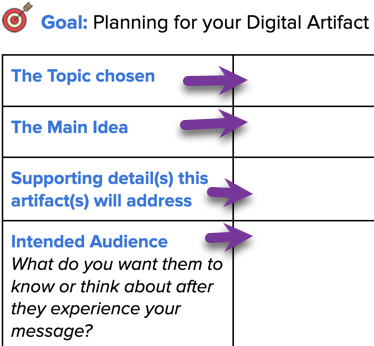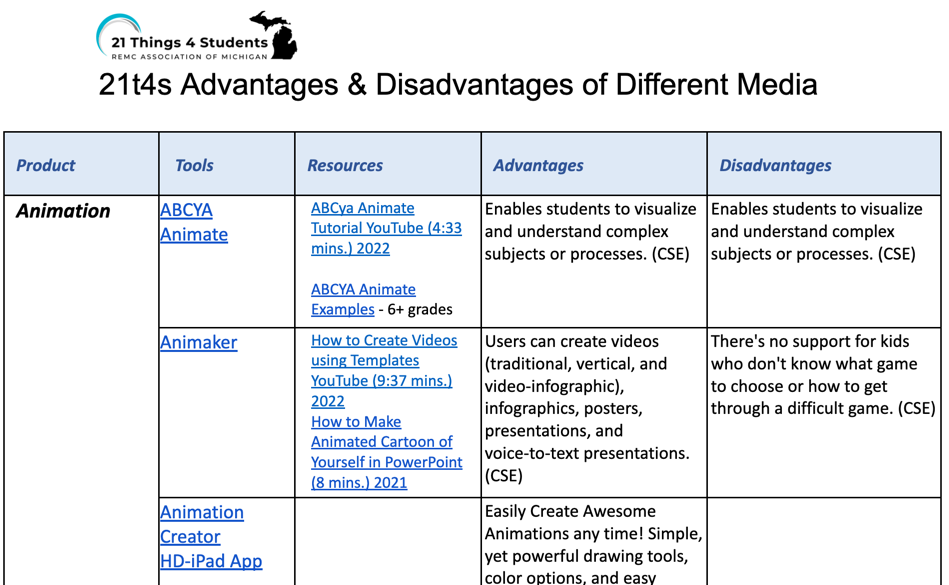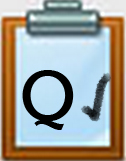Q3 Creating Your Digital Artifact Step 1
STEPS
Make a copy or download and save this 17.Q3 Plan & Create Your Digital Artifact document.
- If you are working with a group, each member should download their own copy of the Plan and Create document and add their initials to the file name.
-
Refer back to your 17.Q2 Worklog. In the Assign Parts section of the Work log, copy the supporting detail assigned to you (Topic, Main Idea, Supporting Detail(s), and your Intended Audience).
-
Paste or type it at the top of your own 17.Q3 Plan & Create Digital Artifact document as shown below

-
-
You can close the 17.Q2 Work Log now because it is not needed for the rest of this activity.
STEPS CONTINUED
Selecting Digital Media Tools: Consider the message you want to make and the supporting detail(s) you identified (or were assigned to as a group member). You will be selecting a digital media application to use to communicate your message (or part of it if in a group).
 Reviewing Digital Media Tools: Open the Advantages & Disadvantages of Different Media Chart and identify a media tool(s) to communicate your message. Tutorials and additional information for the Media Tools are located on the sub-pages that are on the right side of this Quest page.
Reviewing Digital Media Tools: Open the Advantages & Disadvantages of Different Media Chart and identify a media tool(s) to communicate your message. Tutorials and additional information for the Media Tools are located on the sub-pages that are on the right side of this Quest page.

In step 5 on the next page, you will Plan & Create Your Digital Artifact.
Competencies & Standards
MITECS Michigan Integrated Technology Competencies for Students, and
1. Empowered Learner
d. Understand the fundamental concepts of technology operations, demonstrate the ability to choose, use and troubleshoot current technologies, are able to transfer their knowledge to explore emerging technologies
5. Computational Thinker
c. Break problems into component parts, extract key information, and develop descriptive models to understand complex systems or facilitate problem-solving
6. Creative Communicator
a. Choose the appropriate platforms and tools for meeting the desired objectives of their creation or communication
b. Create original works or responsibly repurpose or remix digital resources into new creations
c. Communicate complex ideas clearly and effectively by creating or using a variety of digital objects such as visualizations, models or simulations
d. Publish or present content that customizes the message and medium for their intended audiences
Websites and Documents
Websites (none)
21t4s Videos
21t4s Documents & Quizzes




